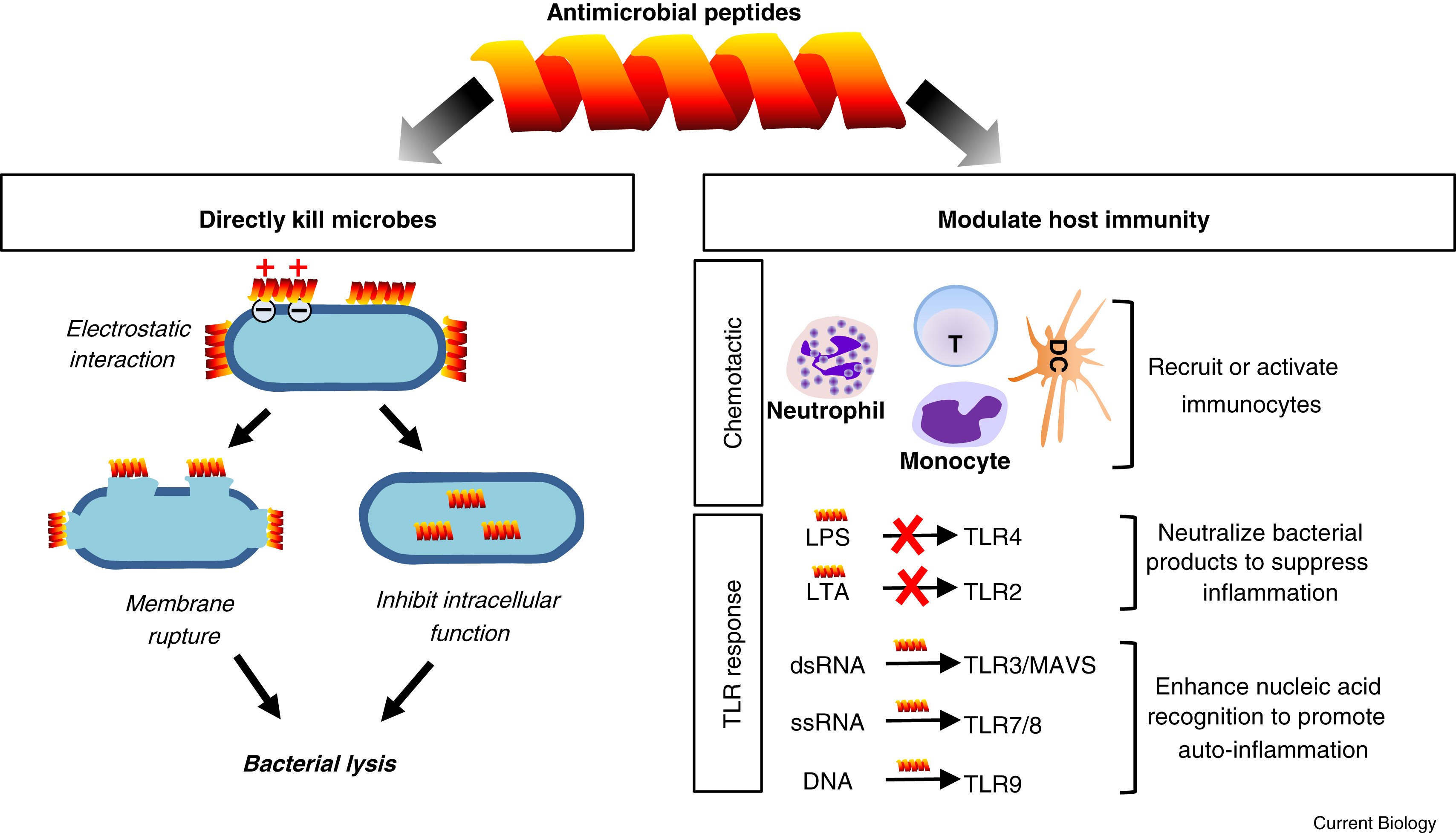These peptides penetrate the bacterial membrane, accumulate inside the bacterium, block the function of the bacterium, and induce cell death by interacting with intracellular DNA and RNA. The antibacterial function of these cationic AMPs is primarily to target DNA and induce DNA damage. 15th day. 2019г.
How do antibacterial peptides kill viruses?
Antiviral peptides are primarily by (1) inhibiting viral attachment and viral cell membrane fusion, (2) disrupting the viral envelope, or (3) inhibiting viral replication. , Shows a strong killing effect against viruses (Jung et al., 2019) (Fig. 3). 16окт. 2020
How do antibacterial peptides provide protection?
Antimicrobial peptides and proteins (AMPs) are diverse classes of natural molecules produced as the first line of defense by all multicellular organisms. These proteins can have a wide range of activities that directly kill bacteria, yeasts, fungi, viruses, and even cancer cells. 2016
What is the mechanism of action of antibacterial peptides?
In general, antibacterial peptides kill bacteria by destroying the membrane or invading bacterial cells and interacting with intracellular components.
What are the functions of antibacterial peptides?
Antibacterial peptides (AMPs) are multifunctional peptides, and their basic biological role is proposed to be the elimination of gram-positive and gram-negative bacteria, fungi, viruses and other pathogenic microorganisms. It has been.

Below you will find two helpful answers on a similar topic. 👇
What do crabs live in?What is the mechanism of action of antimicrobial peptides?
